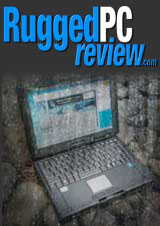« "The Cloud" | Main | Windows 8: a bit of fear, uncertainty and doubt »
August 8, 2011
Do you have "Grandpa Boxes" in your lineup?
Unlike Gary Trudeau whose "Doonesbury" strips can be personal and mean-spirited (remember his relentless unfair mocking of the Apple Newton?), Scott Adams' "Dilbert" presents a lighthearted, humorous, yet keenly insightful commentary on the corporate and technical issues of the day.
In a recent strip (August 3, 2011), Dilbert's working on his computer when a young colleague approaches and asks, "Are you getting a lot done on the Grandpa Box?" "The what?" Dilbert asks. "The people in my generation do our work on our phones and tablets," is the response. "I also have a laptop," Dilbert objects. "I'll text the nineties and let them know," the young gun says (see the strip here)
This made me think. Is this really happening? Are we really seeing a shift from the computing tools as we know them to a new generation of devices that we didn't really think could do the serious jobs? While it seems almost unthinkable that a smartphone could replace a "real" computer, 30 years ago almost no one thought PCs could ever challenge mainframes or minicomputers, and yet PCs went on to revolutionize the world and doing things no one ever thought they could.
It also made me think of my own changing pattern of using computers. I use my own smartphone and tablet more and more, and my laptop less and less. I described the syndrome in a serious of lengthy blog posts entitled "iPad on the Road". On my own latest intercontinental business trip, I didn't take along a laptop at all, just my smartphone and tablet.
I also thought of a period in my life about three years ago where texting was my preferred means of communication, and how immersed in it I became. I got to a point where the shortcuts on the tiny keypad of my phone and its T9 predictive text entry became second nature and I could bang out messages with hardly looking at the keypad at all. I remember thinking that hundreds of millions of people, and perhaps billions, text every day. To them, T9 and similar text entry is second nature. And yet, makers of rugged tablet computers hardly ever include any of those text entry methods. I even suggested it to some, but there never was follow-up.
Can phones and tablets really do the job of computers as we know them? And is the young generation really doing its work on phones and tablets? I can see it to some extent as I am using Apple's Pages wordprocessor on my iPad, and also FTP, SSL, blog and remote login programs. And that's on top of what media tablets do best, like browsing, email, entertainment, research, etc. And on my most recent trip, Skype on my tablet actually replaced even my phone.
Does all of that make conventional computers "Grandpa Boxes"? The way I see it now, yes and no. Just like PCs replaced some of the conventional computing of the day and added a huge amount of new and previously unimaginable ways of using computers in everyday life, smartphones and tablets will replace some of the things we're now doing on desktops and notebooks, and add a huge amount of new functionality that we never really thought of.
This means we may be at the threshold of a new era with both challenges and opportunities. The challenge will be to figure out what all will inevitably be replaced by these emerging computing platforms. The opportunity will be to take advantage of the new platforms.
For the mobile rugged computing industry this means thinking long and hard which of their products are "Grandpa Boxes" and which continue to fill a real, rational need. And also what part of the smartphone and media tablet revolution to embrace and employ for their own purposes.
So far, the industry has been timid. The are a few ruggedized smartphones and a couple of "new style" tablets, but no one's really much ventured past the cozy confines of the Wintel world. And the new realm of apps has not yet been discovered by the verticals. What this means is that a giant opportunity remains unexplored, and there's also a danger of simply missing the boat by waiting too long, with new players coming in and taking over.
That won't necessarily happen as there's much expertise in this industry, but what if suddenly there are apps that can handle business processes on inexpensive yet durable smartphones and tablets the way hundreds of millions already use their smartphones and tablets?
Do you have Grandpa Boxes in your lineup? If so, does that make sense, or is it time to move on?
Posted by conradb212 at August 8, 2011 4:43 PM
















